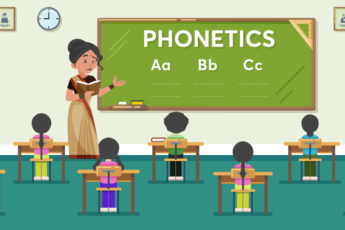Why do Schools need to Offer a Financial Literacy Course?
A daily wager, resident of Mandala, diligently saved money and deposited it in a bank month on month. She was putting aside a good chunk of her income to buy her daughter a cycle, which would make it easier for her to get to school.
While we’re impressed to learn that she approached a bank to accumulate a substantial amount, unfortunately the story doesn’t end well for the daily wager. When she approached the bank to understand if she had collected enough money to purchase a mode of commute for her daughter, she was in distress when she found that her account was wiped clean; all she had was a few hundred rupees.
She wasn’t alone in this woeful moment, many locals had fallen prey to the scam. The middlemen who help these locals set up their bank accounts are the ones who siphon money off their accounts. It all boils down to the lack of literacy among locals, the lack of ability to put down their own name, signature, and know-how to count.
Financial Illiteracy is like plague in districts like Mandala, Madhya Pradesh’s tribal-dominated region. District Collector and IAS officer Harshika Singh recognized the problems faced by the locals and addressed the root cause of the problem.
Mandala has become the first fully “functionally literate” district in the country, courtesy of District Collector and IAS officer Harshika Singh.
Central Board of Secondary Education (CBSE) joined hands with the National Payments Corporation of India (NPCI) to launch Financial Literacy Textbooks for students of Class VI to enable them to understand basic financial concepts at a preliminary stage of their education.
It is essential for growing children to understand the concept of money management for it can influence their perspective with respect to money. Introducing these concepts at an early age helps them understand the value of money, which in turn helps make reasonable expenses.
Money management, savings, debt management, taxation, loans, etc. are topics covered under the broad financial literacy. These are core life skills that people learn along the way. There are myriad benefits of adding financial literacy course to the curriculum:
₹ Manage Monthly Allowances
Money management is a core life skill and a lifelong learning. When children learn about handling money at a young age, they start understanding the concept of value for money. This in turn influences their habits of purchasing and managing their monthly allowances.
₹ Reasonable Expenses
When one begins to understand the value of money, their perspective towards making purchases and expenses changes for good. Given the increasingly challenging world, students should learn about managing money from a young age to avoid irrelevant expenses.
₹ Handle Future Finances Better
Individuals who learn to manage money at a young age end up being better at handling finances as an adult. This means, they spend responsibly, pay bills and handle debts in a better manner than others.
₹ Plan and Prepare for Rainy Days
Exposure to handling finances at a young age helps individuals to grow into more responsible citizens. Besides paying their dues, they also learn to save for unforeseen emergencies. The habit of planning in advance and planning finances is a crucial life skill.
₹ Makes one independent
Preparing for higher studies, making wise decisions, and choosing the right financial literacy course options gives one the confidence they need to face an adult life. Being financially literate imparts confidence when one succeeds at meeting their short term goals which swiftly move on to achieving long term goals. This gives one the sense of ownership, belonging, and helps them lead a satisfactory life.
Financial Literacy is an essential part of every individual’s life and the money managing skills that accompany the subject are crucial to lead a successful life. That said, Education Ministry of India is taking essential steps to inculcate Financial Literacy as part of the curriculum.




Leave a Comment